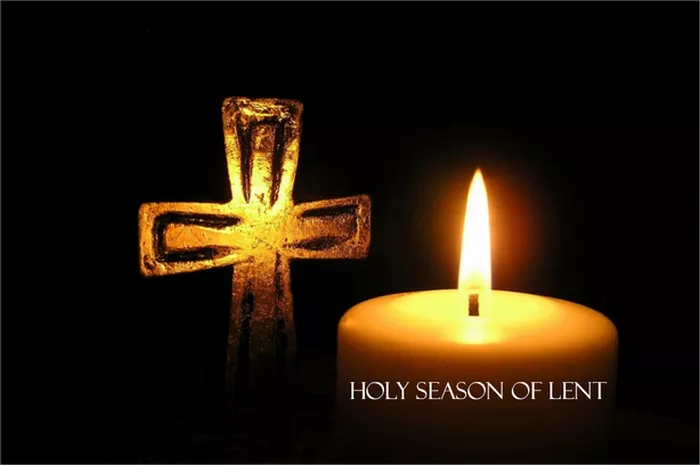Lent, a period of reflection, repentance, and preparation for Easter, holds significant importance in the Christian calendar. Lasting approximately 40 days (excluding Sundays), Lent mirrors Jesus Christ’s 40 days of fasting in the wilderness. For Christians worldwide, this solemn season provides an opportunity for spiritual growth, self-discipline, and deepening their relationship with God. In this article, we delve into the practices and traditions observed by Christians during Lent, shedding light on their meanings and significance.
Origins and Significance
The origins of Lent can be traced back to the early days of Christianity, with references found as early as the second century. Initially, Lent was primarily observed as a period of preparation for new converts before their baptism on Easter Sunday. Over time, the duration and practices associated with Lent evolved, eventually becoming a universal tradition within the Christian faith.
The duration of 40 days holds symbolic significance in Christian theology, representing various themes such as Jesus’ 40 days of fasting, Moses’ 40 days on Mount Sinai, and the Israelites’ 40 years of wandering in the desert. It is a period marked by introspection, repentance, and spiritual renewal, leading up to the celebration of Christ’s resurrection on Easter Sunday, the most significant event in the Christian calendar.
Fasting and Abstinence
One of the most recognizable practices during Lent is fasting, which involves abstaining from certain foods or activities as a form of self-discipline and spiritual reflection. Traditionally, Christians have observed a fast on Ash Wednesday and Good Friday, consuming only one full meal and abstaining from meat. Some may choose to fast throughout the entire Lenten season, while others may adopt alternative fasting practices, such as abstaining from sweets or limiting their consumption of entertainment media.
In addition to fasting, many Christians also practice abstinence during Lent, refraining from indulging in certain luxuries or vices. This may include giving up habits such as smoking or alcohol consumption, as well as abstaining from activities like watching television or using social media. The goal of abstinence is to cultivate self-discipline, redirecting one’s focus towards prayer, reflection, and acts of service.
Prayer and Reflection
Central to the Lenten observance is a commitment to prayer and reflection. Christians are encouraged to set aside dedicated time each day for prayer, meditation, and reading of Scripture. This may involve participating in special Lenten prayer services at church, engaging in personal devotions, or joining prayer groups and study circles.
Many churches also offer specific devotional resources and guides for the Lenten season, providing individuals with structured ways to deepen their spiritual journey. Themes of repentance, forgiveness, and reconciliation are often emphasized during Lent, prompting believers to examine their lives, confess their sins, and seek God’s forgiveness and guidance.
Almsgiving and Acts of Charity
Another essential aspect of Lent is the practice of almsgiving, which involves acts of charity and generosity towards those in need. Inspired by Jesus’ teachings on love, compassion, and service to others, Christians are encouraged to extend a helping hand to the less fortunate during this season.
This may take various forms, including donating to charitable organizations, volunteering at local shelters or food banks, or simply reaching out to individuals in their communities who are struggling. The spirit of almsgiving is not limited to material assistance but also encompasses acts of kindness, compassion, and solidarity with those who are marginalized or oppressed.
Sacramental Practices
Throughout Lent, many Christians participate in sacramental practices that hold special significance within their faith tradition. The sacraments of confession and reconciliation, also known as penance, play a central role during this season, offering believers the opportunity to seek spiritual healing and renewal through the forgiveness of sins.
In addition to confession, Lent is also a time for the celebration of the Eucharist, or Holy Communion, which commemorates Jesus’ Last Supper with his disciples. The Eucharist serves as a reminder of Christ’s sacrifice on the cross and his ongoing presence in the lives of believers, nourishing them spiritually as they journey through the Lenten season.
Liturgy and Worship
The liturgical calendar of the Church is rich with special observances and rituals during Lent, providing believers with opportunities for communal worship and reflection. Ash Wednesday marks the beginning of Lent, with services held in churches worldwide where ashes are imposed on the foreheads of the faithful as a symbol of repentance and mortality.
Throughout the Lenten season, churches may incorporate special liturgies, hymns, and readings into their worship services, focusing on themes of penitence, redemption, and hope. The observance of Holy Week, the final week of Lent leading up to Easter, is particularly significant, with services such as Maundy Thursday, Good Friday, and the Easter Vigil marking key moments in the Passion narrative.
Conclusion
In conclusion, Lent holds profound significance in the lives of Christians worldwide, serving as a sacred journey of spiritual renewal, self-examination, and devotion. Through practices such as fasting, prayer, almsgiving, and participation in sacramental rites, believers seek to deepen their relationship with God, cultivate virtues of humility and compassion, and prepare their hearts to celebrate the joy of Christ’s resurrection on Easter Sunday. As individuals and communities engage in these practices during Lent, they are reminded of the transformative power of faith, grace, and love in their lives and in the world around them.

